Mashed potatoes become gummy due to over-mashing or using a food processor, which releases too much starch. Using the right type of potatoes and mashing them while hot can prevent gumminess. For best results, mash potatoes gently and immediately after cooking.
Mash potatoes are on the menu for today. You have prepared them by peeling and cutting them up.
You have cooked them until they are fork tender and it is time to mash them. You can’t wait to taste those light fluffy mashed potatoes but wait!
They are not mashing the way you want them and you ask yourself, “Why are my mashed potatoes gummy”? In this article, I will explain why your mashed potatoes are gummy.
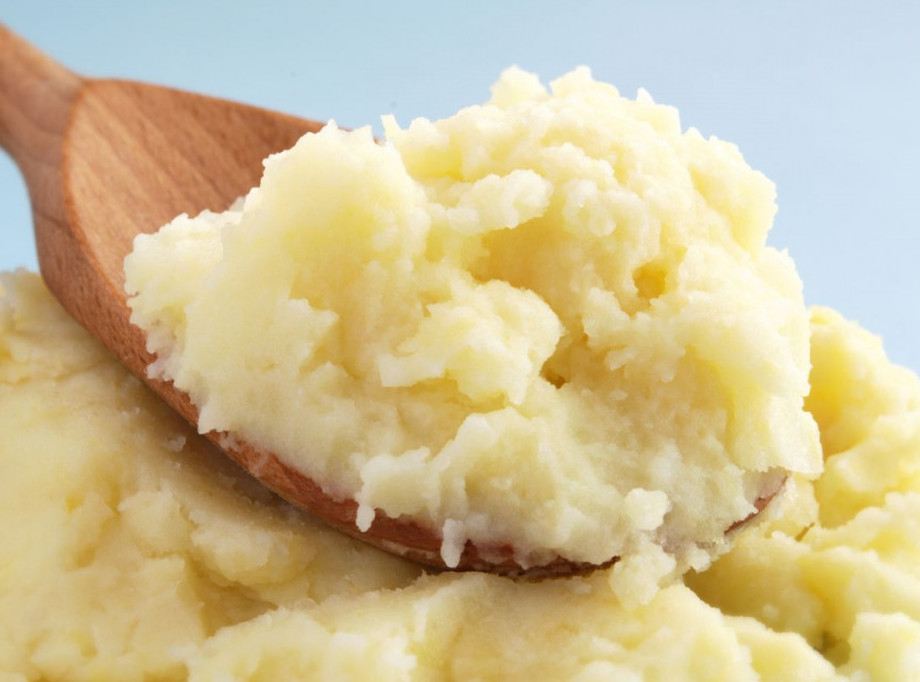
Why Are My Mashed Potatoes Gummy?
One of the biggest culprits of gummy mashed potatoes is too much or vigorous mashing. It is recommended to use a potato ricer or handheld potato masher.
You also may be using the wrong potato. Yes.
Certain potato types are better for mashed potatoes while others are not. Also mashing cold potatoes is going to cause gumminess.
I made the mistake of mashing cool potatoes. Not good.
Not good at all. I had boiled my potatoes but wasn’t ready yet to mash them, so I drained them and left them to sit in the pan.
When I was ready to mash them they were a big gummy mess. So make sure to mash your potatoes immediately after draining them for the best results.
Using a food processor is sure to cause gumminess. I know that it might seem the easy way to mash those potatoes.
No hard work involved. Just throw them in there and turn the machine on.
But the vigorous action is going to bring out all the starch in those potatoes. Just don’t do it!
Is It OK to Eat Gummy Mashed Potatoes?
Yes, it is ok to eat gummy potatoes. They will not make you sick.
And they may taste just fine but the texture is going to be off. I know many who have a problem with texture.
For example, my daughter cannot get past the texture of broccoli unless it is well-cooked and mushy. Your guests may also not be able to get past the texture of gummy mashed potatoes.
So it may be best to use them in a casserole instead.
Can You Fix Gummy Mashed Potatoes?
There is no way to fix gummy potatoes. Once you have all that starch released in the potatoes there is no way you can take it out.
But instead of throwing them out, you can use them in a different way such as in a casserole. Watch the video below.
Should You Rinse Your Potatoes?
Potatoes contain starch. One way to get rid of some of it is to rinse your potatoes with cold water before boiling them for mashed potatoes.
I have even gotten them ready to cook beforehand and let them sit in the cold water. Then when I was ready to cook them I rinsed them one more time.
You can also rinse them after they have cooked, but never with cold water. Make sure that the water is warm or hot.
Using cold water is going to cool down those potatoes and you do not want to do that. Rinse them with warm or hot water and then mash them right away.
What Potatoes Are Best For Mashed Potatoes?
There are two main types of potatoes. Starchy and waxy.
But which one is best for mashed potatoes? First, let’s find out the difference between the two.
This will help you to understand why one type is better than the other.
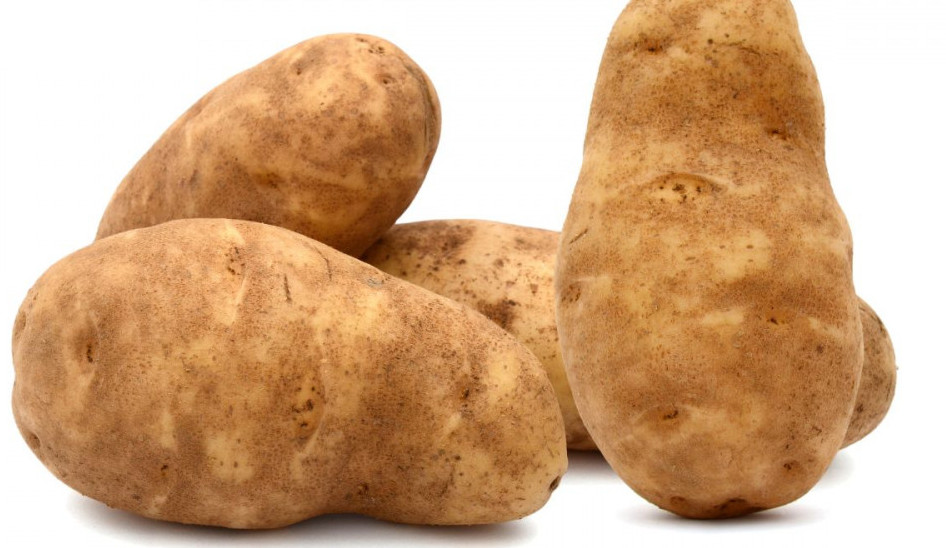
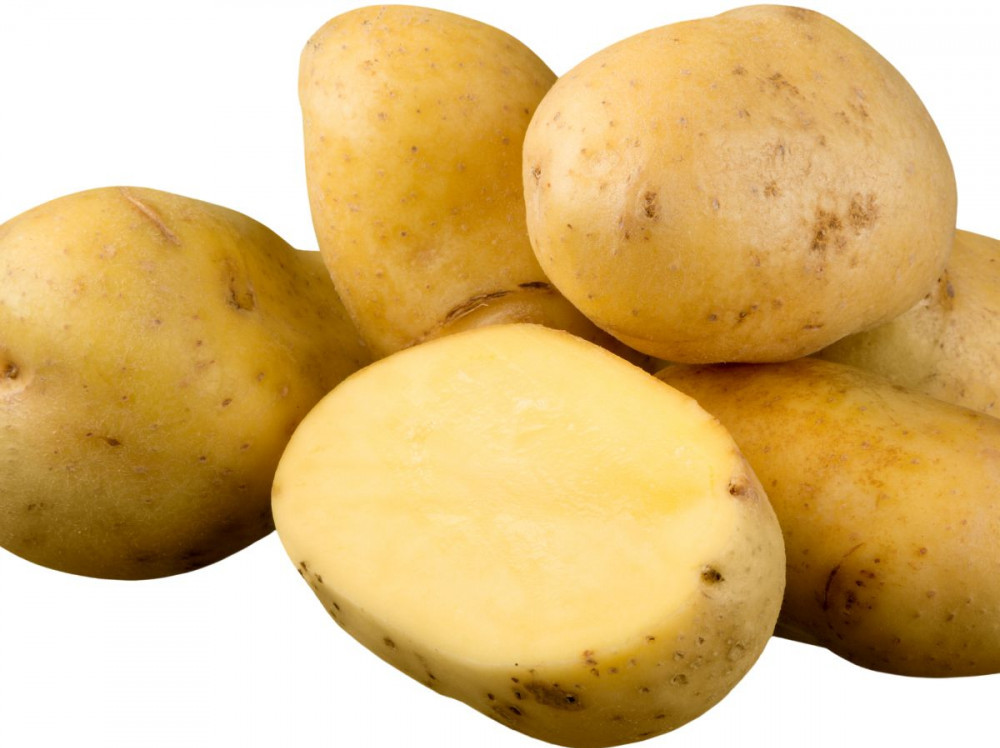
Starchy Potatoes
These potatoes have low moisture and sugar content but are high in starch content. They break down easily when cooked which makes them the better potato for baked, mashed, fried, or roasted.
The starch granules swell as they boil therefore making fluffy mashed potatoes. Russet, Idaho, and Yukon Gold fall into the category of starchy potatoes.
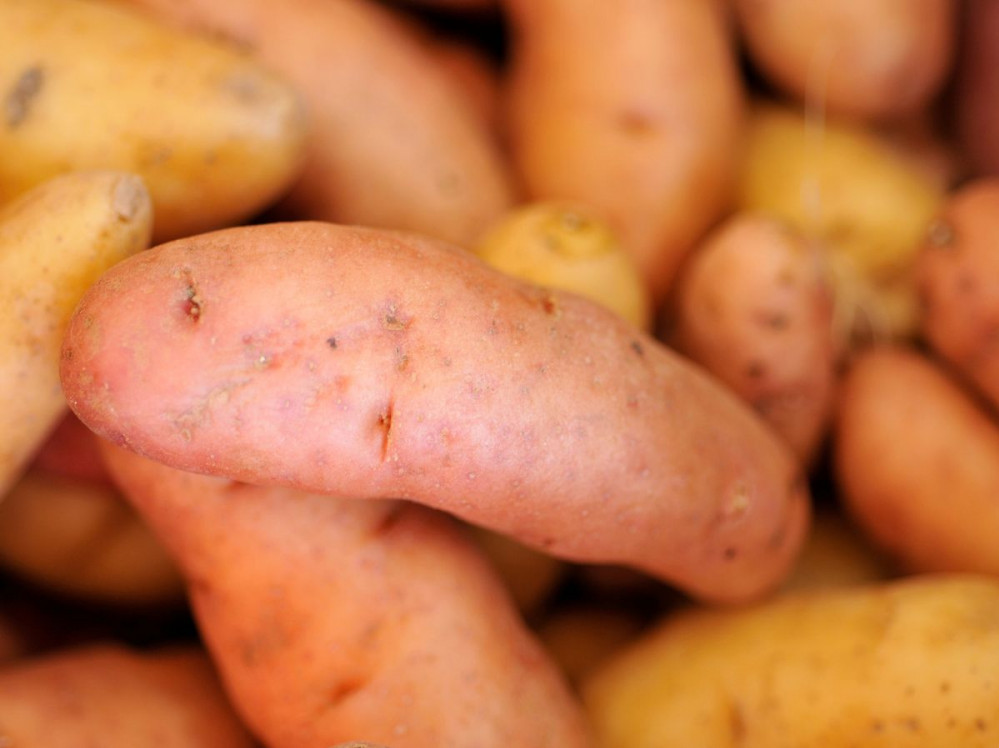
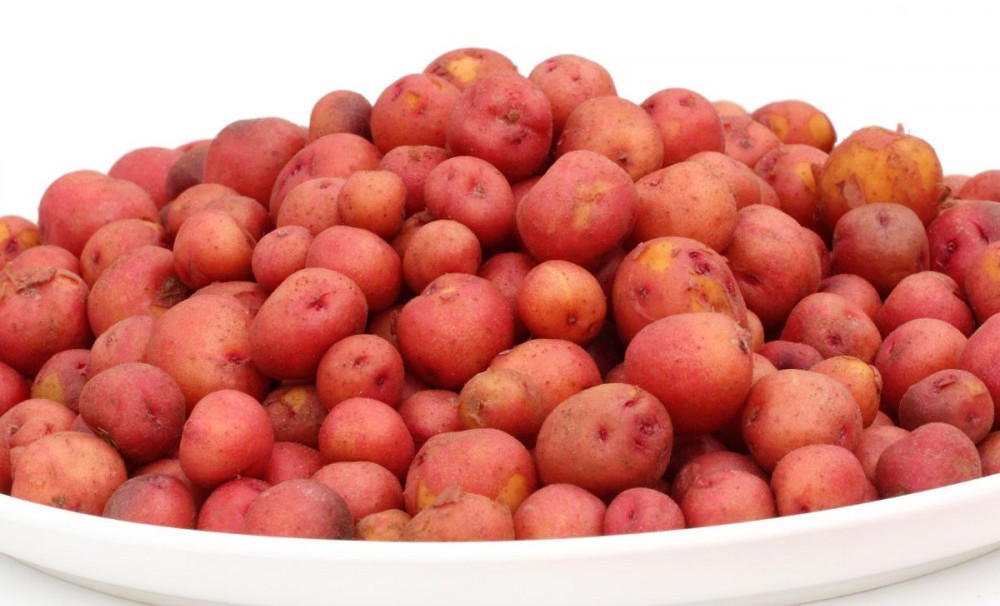
Waxy Potatoes
These potatoes have high moisture and low starch content. They hold their shape while cooking which makes them the better potato for salads, casseroles, soups, and stews.
Examples of waxy potatoes are red, new potatoes, and fingerlings.
My Final Thoughts
- Overworking potatoes, such as overmixing, can lead to gummy mashed potatoes due to the breakdown of starches, much like how over-kneading bread dough can result in a tough loaf.
- Using the wrong type of potato, like waxy varieties instead of starchy ones, can cause mashed potatoes to become gummy, similar to using soft wheat flour instead of hard wheat flour for making bread.
- Adding liquid that is too cold, such as milk or butter, can affect the texture of mashed potatoes, akin to how adding cold liquids to a roux can result in a lumpy sauce.
- Boiling potatoes improperly, either by starting them in hot water or overcooking, can lead to a gluey texture, as can happen with pasta that is started in warm water or overcooked.
- To avoid gummy mashed potatoes, it’s recommended to use the right potato variety, avoid overmixing, add warm liquids, and cook potatoes correctly, much like following specific steps to achieve the perfect texture in risotto.
If you are asking yourself “Why are my mashed potatoes gummy?” you need to remember that there are three likely culprits. You are mashing them too much or too vigorously, you may not be using the right potato and you are mashing them after they have cooled a bit.
It is recommended to use a potato masher or ricer but never a food processor. Too much or vigorous mashing releases too much starch and results in your potatoes becoming gummy.
My mom mashed her potatoes with a regular table fork. And she was mashing potatoes for a family of four. I have to admit that I do use a potato masher, to begin with, but finish them with a hand-held electric mixer.
To get rid of excess starch you need to rinse and soak your potatoes in cold water before cooking and warm or hot water after cooking and draining them. Although you can eat gummy mashed potatoes be aware of the texture difference.
They may taste ok but the texture may be off-putting. You cannot fix gummy potatoes but they have their uses in casseroles instead.
Knowing the best potatoes to use for mashed potatoes will result in those wonderful fluffy mashed potatoes. In my research for this article, I found that you should not introduce cold milk into your potatoes and your butter should be at room temperature while mashing them.
But I have to be honest, I do use cold milk and I have never had my mashed potatoes turn out gummy, except the time I mashed them when the potatoes had cooled.
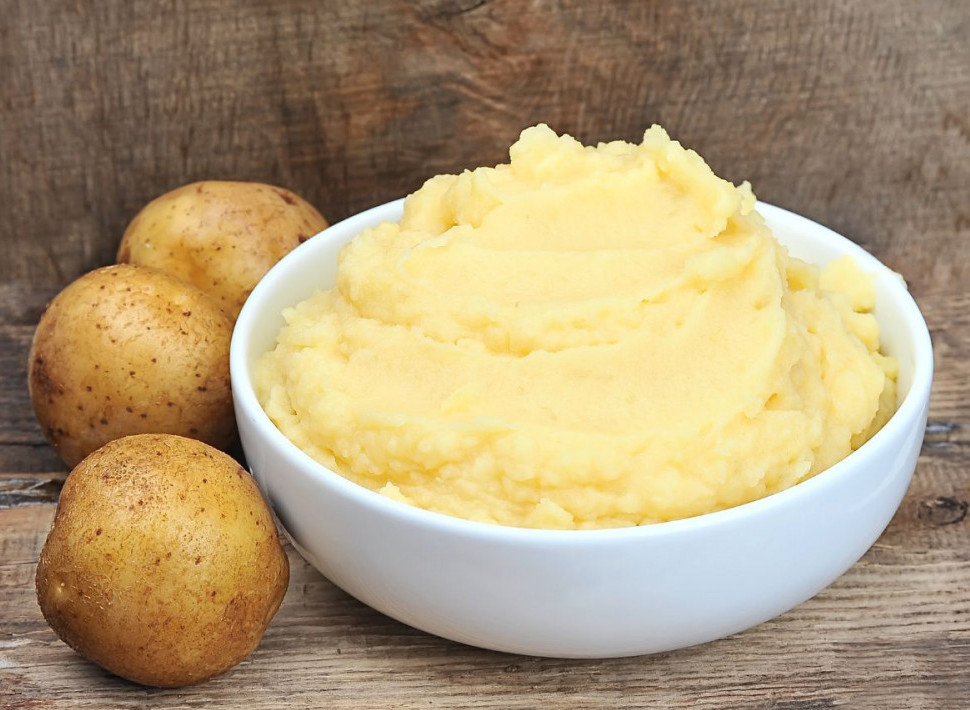
I hope that this article was helpful in your mashed potato adventures and that your mashed potatoes do not become gummy. Please leave a comment below with your thoughts.
And as always, have a wonderful day!
FAQ: Why Are My Mashed Potatoes Gummy?
1. What causes mashed potatoes to become gummy?
- Gummy mashed potatoes often result from over-mashing or using a food processor, which releases too much starch from the potatoes. This excess starch makes the mashed potatoes sticky and unpleasantly thick.
- The type of potato used can also affect the outcome; some potatoes have higher starch content and are more prone to becoming gummy when overworked.
2. How can I prevent my mashed potatoes from becoming gummy?
- To prevent gumminess, it’s best to mash the potatoes gently and stop once they reach the desired consistency. Avoid over-mashing to minimize the risk of releasing too much starch.
- Using the right tools can help, such as a potato masher or ricer, instead of high-speed mixers or processors that can overwork the potatoes quickly.
3. Are there specific types of potatoes that are better for making mashed potatoes?
- Yes, choosing the right type of potatoes can make a big difference. Waxy potatoes or those with less starch content, like red potatoes, tend to hold their shape better and are less likely to become gummy.
- Floury potatoes like Russets or Yukon Golds are great for mashing but require careful handling to avoid becoming too starchy.
4. What is the best way to cook potatoes for mashing to avoid gumminess?
- Cooking potatoes properly is crucial. It’s best to start them in cold water and bring them to a boil; this ensures they cook evenly. Be sure to cook them until they are tender but not falling apart, as overcooking can also contribute to gumminess.
- Another tip is to mash the potatoes while they are still hot, as they will be softer and easier to work with, reducing the need for excessive mashing.

I’m Diane, a culinary enthusiast who loves to share my cooking adventures and knowledge with you.
This blog is my cozy corner on the internet where I unravel the secrets behind making everyday cooking simple, enjoyable, and downright delicious.
Whether it’s unlocking the flavor potential in chicken or figuring out why your mashed potato cakes won’t hold together, I’m here to guide you through.
Join me as we explore various dishes, solve common kitchen dilemmas, and discover new recipes that will make you fall in love with cooking all over again.
Cooking is an adventure that’s best shared, so let’s get started!

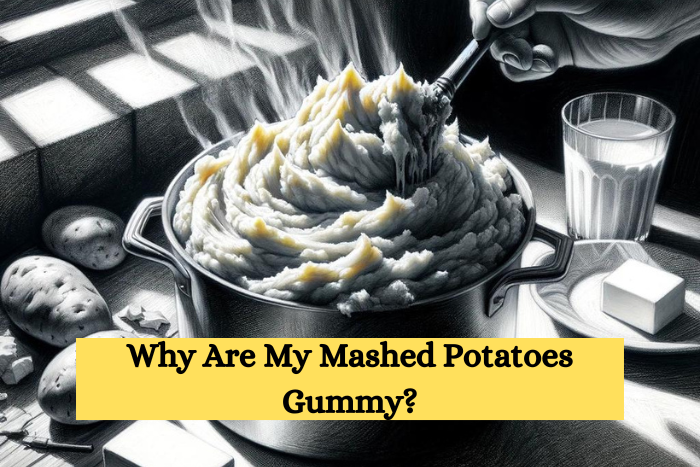
Hi Tai, I’ve been waiting for the answer to this problem for a long time. Tha k you so much for the answer!
Hi- I am so glad that you found this information helpful.